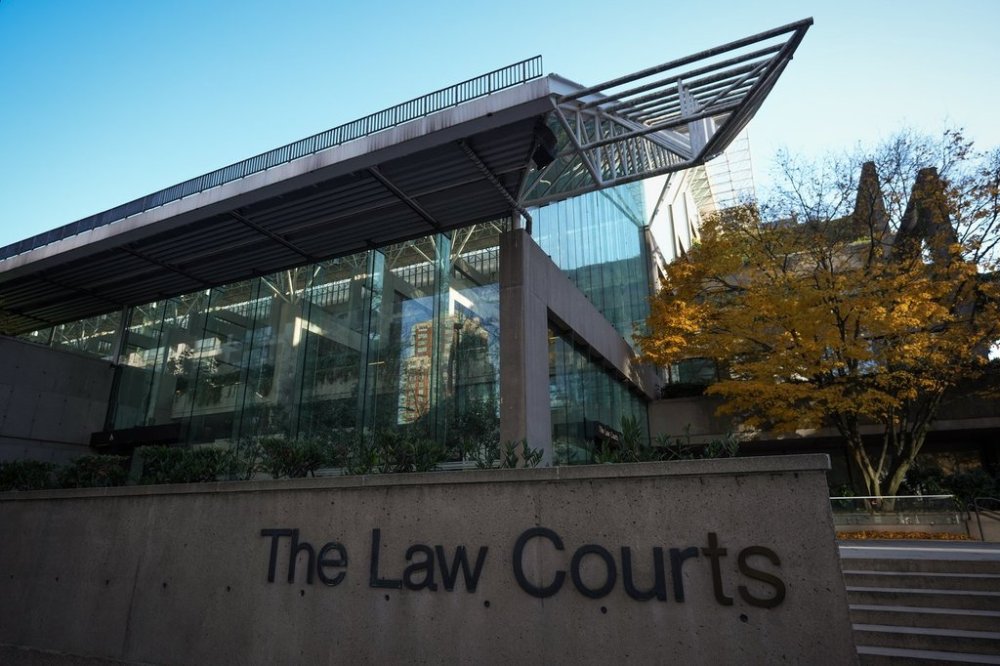B.C. judge says self-defence can include expelling someone who has outstayed welcome
Advertisement
Read this article for free:
or
Already have an account? Log in here »
To continue reading, please subscribe:
Monthly Digital Subscription
$0 for the first 4 weeks*
- Enjoy unlimited reading on winnipegfreepress.com
- Read the E-Edition, our digital replica newspaper
- Access News Break, our award-winning app
- Play interactive puzzles
*No charge for 4 weeks then price increases to the regular rate of $19.00 plus GST every four weeks. Offer available to new and qualified returning subscribers only. Cancel any time.
Monthly Digital Subscription
$4.75/week*
- Enjoy unlimited reading on winnipegfreepress.com
- Read the E-Edition, our digital replica newspaper
- Access News Break, our award-winning app
- Play interactive puzzles
*Billed as $19 plus GST every four weeks. Cancel any time.
To continue reading, please subscribe:
Add Free Press access to your Brandon Sun subscription for only an additional
$1 for the first 4 weeks*
*Your next subscription payment will increase by $1.00 and you will be charged $16.99 plus GST for four weeks. After four weeks, your payment will increase to $23.99 plus GST every four weeks.
Read unlimited articles for free today:
or
Already have an account? Log in here »
DUNCAN – A B.C. Supreme Court judge says self-defence rules that allow people to arm themselves against an intruder can also include situations where someone refuses to leave after initially being welcomed.
The ruling comes in the “tragic” case of a B.C. man acquitted of manslaughter by a jury in July, after he accidentally stabbed and killed his brother who had become an unwelcome guest in his home on the Ditidaht First Nation reserve on Vancouver Island.
Michael Edgar was charged after he “accidentally impaled” his brother Matthew Edgar with a knife in March 2022, in a fight as Michael tried to eject his brother.

Justice Gareth Morley’s reasons for allowing the jury to consider self-defence, released this week, say the Supreme Court of Canada found the Criminal Code’s language around defence of property against trespassers allows people in certain circumstances to arm themselves and “do things that would otherwise be crimes.”
Morley’s ruling rejected the Crown’s argument that self-defence doesn’t apply to using force to eject guests who wear out their welcome.
He says such events happen in Canada “almost every night,” citing the situation of a nightclub bouncer using minimal force to eject a “rowdy patron” from a bar.
“Has every one of those unconsented-to touchings been a crime?, Morley’s ruling asks.
The judge found that no superior courts had previously reported a decision about whether the Criminal Code’s self-defence language, updated in 2011, “extends to acts of removing guests whose permission to be on premises has been revoked.”
The judge found that three provincial courts, however, have ruled on the issue and found the same thing.
“All three found that there is no legal difference between acts committed to remove an invitee who will not leave and acts committed to remove someone who entered the property without permission in the first place,” the ruling says.
Justice Morley published his reasons for allowing the jury to consider self-defence “because of the broader significance of the … issue, which appears not to have been considered by a superior court in Canada since the current language was enacted in 2011.”
This report by The Canadian Press was first published Nov. 13, 2025.


